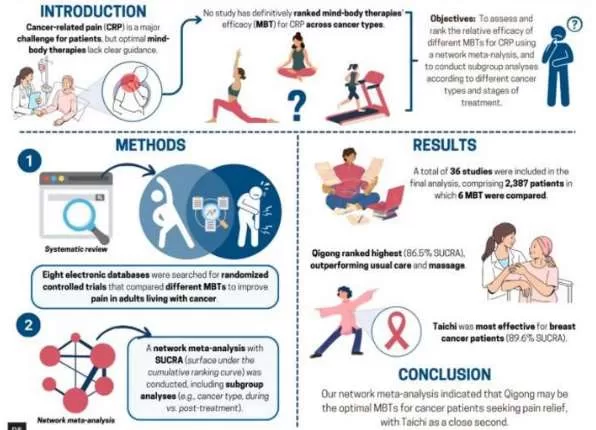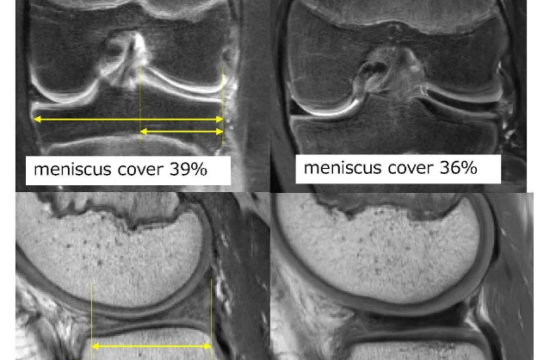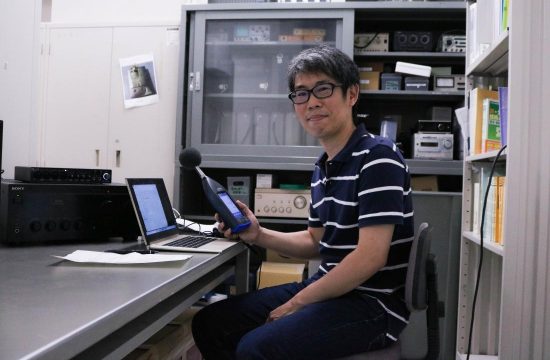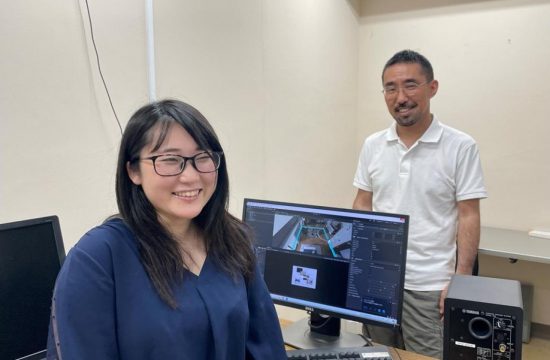
Guangzhou, August 27 — A new network meta-analysis led by Prof. Hou Xiaohui, vice president of Guangzhou Sports University, has revealed that Qigong and Taichi may be among the most effective mind-body therapies (MBTs) for alleviating cancer-related pain (CRP).
The study, published in Translational Exercise Biomedicine, evaluated the relative efficacy of various MBTs across different cancer types and treatment stages.
“International guidelines already recommend physical activity and MBTs for cancer patients, but the most effective approach for pain relief remains unclear,” said Prof. Hou. “Our goal is to identify which therapies truly make a difference.”

The research team screened 4,916 articles and selected 36 studies involving 2,387 participants for inclusion. The therapies compared included conventional exercise, Tai Chi, Pilates, Baduanjin, yoga, dance, health education, usual care, massage, and waiting list controls.
The findings were striking: Qigong emerged as the most effective therapy for pain relief, followed closely by Tai Chi. Subgroup analysis focusing on breast cancer patients showed Taichi to be particularly effective in managing CRP. Qigong demonstrated the highest efficacy during active treatment phases, while Taichi proved more beneficial post-treatment.
Yoga, while previously supported in breast cancer care, was found to be less effective than Qigong and Taichi in this analysis. Conventional exercise also showed notable benefits for pain management.
“This study suggests that Qigong and Taichi can act as natural ‘painkillers’ for cancer patients, offering relief without adverse effects,” Prof. Hou explained. “However, we continue to advocate for a comprehensive pain management strategy that includes pharmacological, physical, psychological, and supportive care.”
Prof. Hou emphasized that while the results are promising, they should be interpreted cautiously and validated through future research with stricter methodologies and pain-focused outcome measures.
The study adds to growing evidence supporting integrative approaches in oncology care, highlighting the potential of traditional movement-based therapies to improve quality of life for cancer patients worldwide.







